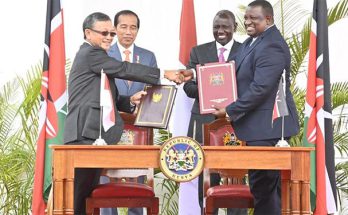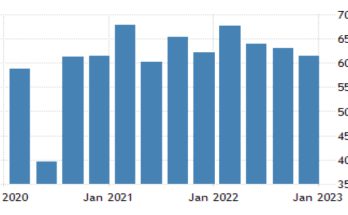 The Bilateral Trade talks held between Kenya and South Africa led by presidents William Ruto and Cyril Ramaphosa is a substantial milestone that is in tandem with the African Continental Free Trade Agreement (AfCFTA) that was signed in March 2018 at the African Union Summit in Kigali, Rwanda.
The Bilateral Trade talks held between Kenya and South Africa led by presidents William Ruto and Cyril Ramaphosa is a substantial milestone that is in tandem with the African Continental Free Trade Agreement (AfCFTA) that was signed in March 2018 at the African Union Summit in Kigali, Rwanda.
Closely following the launch of the Facilitated and Guided Trade Initiative in July 2022 whose aim was to re-invigorate trading under the AfCFTA, the Kenya-South Africa initiative gave an opportunity to captains of industry to showcase their products. Kenya came out strong on tea, avocado and coffee as well as inter-country meat import and export. This was coupled with an opportunity to leverage the industrial expertise of South Africa in the housing industry plugging into Kenya’s desire to construct an initial 200,000 housing units in the informal settlements which is a key component of the manifesto of President Ruto’s new administration.
Notably, the 2 countries agreed on a visa-free regime for 90 days which corresponds to the Protocol on the Free Movement of Persons which period will inform future decisions on movement restriction or otherwise amongst the two countries and the region.
It is worth noting that Kenya and South Africa are among the big economies in Africa whose bilateral engagements will catalyse related trade agreements amongst nations in the Africa Continent.
The two heads of state underscored the need to review Tariff and Non-Tariff barriers hindering the effective realisation of trade integration, more particularly Sanitary and Phytosanitary measures resulting in import and export restrictions put in place to preserve the health of humans, animals, and plants which could easily be abused for purposes of market protection rather than for health and welfare for which it was intended. Instead, they should be enhanced not to obstruct legitimate trade among member states.
There is no doubt that this trade agreement will have attendant benefits in facilitating economic and political development of the two countries and the region resulting in sustainable development, increased regional trade and resultant sound governance frameworks amongst member states a step in the right direction, no doubt.



